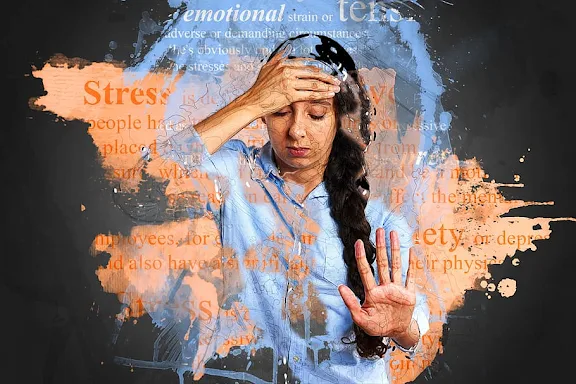How to Deal with anxiety in daily life?: Dealing with anxiety in daily life requires a multi-faceted approach that combines self-care, lifestyle changes, possibly professional help, and sometimes medication. Here are strategies to help manage anxiety in everyday life:
1. Understand Your Anxiety
- Identify triggers: Notice what situations, thoughts, or feelings trigger your anxiety.
- Accept your feelings: Acknowledge that your feelings of anxiety are a part of your experience but don't define your entire being.
2. Practice Mindfulness and Relaxation Techniques
- Deep Breathing: Learn and practice deep breathing exercises to help calm your nervous system.
- Meditation: Regular meditation can help reduce stress and anxiety levels.
- Yoga: Combines physical movement, meditation, light exercise, and controlled breathing—all beneficial for reducing anxiety.
3. Maintain a Healthy Lifestyle
- Regular Exercise: Physical activity can significantly reduce anxiety. Aim for at least 30 minutes of moderate exercise most days.
- Healthy Diet: Eat a balanced diet rich in fruits, vegetables, lean protein, and whole grains. Limit caffeine and sugar, which can exacerbate anxiety.
- Adequate Sleep: Ensure you're getting enough sleep, as lack of sleep can increase anxiety.
4. Set Boundaries and Manage Time
- Learn to say no to demands on your time that will place you under unnecessary stress.
- Prioritize tasks and break them down into manageable steps.
5. Connect with Others
- Spend time with friends and family who make you feel good about yourself.
- Consider joining a support group where you can share your experiences and learn from others dealing with anxiety.
6. Limit Stimulants
- Reduce or eliminate the intake of caffeine and alcohol, as they can increase anxiety levels.
7. Professional Help
- Therapy: Cognitive Behavioral Therapy (CBT) is particularly effective for treating anxiety. It helps you identify and challenge the thought patterns that contribute to your anxiety.
- Medication: In some cases, medication may be necessary. Consult with a healthcare professional for advice.
8. Self-help Resources
- Books, online courses, and apps dedicated to managing anxiety can provide useful strategies and support.
9. Practice Self-Compassion
- Be kind to yourself. Remember that dealing with anxiety is a process, and there will be good and bad days.
10. Create a Routine
- Having a predictable routine can help manage anxiety by providing a sense of structure and normalcy.
11. Engage in Activities You Enjoy
- Make time for hobbies and activities that bring you joy and relaxation.
12. Limit Exposure to News and Social Media
- Constant exposure to negative news can increase anxiety. Limit your intake and be mindful of the sources.
13. Learn Stress Management Techniques
- Techniques such as progressive muscle relaxation can help ease the physical symptoms of anxiety.
14. Seek Professional Help if Needed
- If your anxiety is severe or interferes with your daily life, seeking help from a mental health professional is crucial. They can provide personalized strategies and support.
Managing anxiety is a personal journey, and what works for one person may not work for another. It's important to be patient with yourself and to keep trying different strategies until you find what works best for you.

